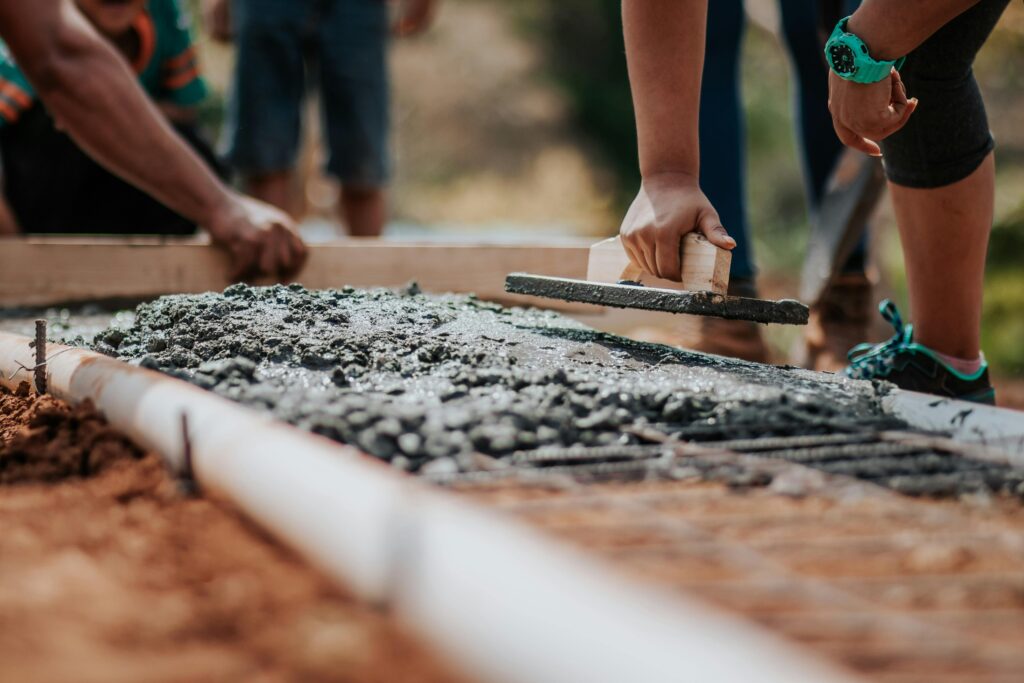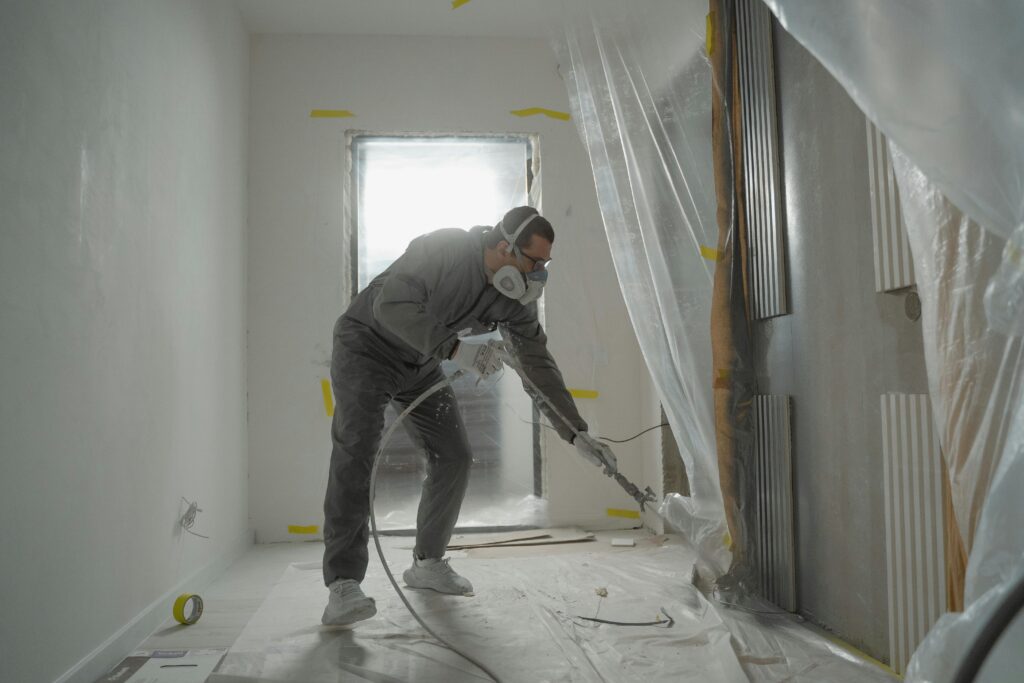What is the 4 2 1 Rule for Concrete? A Complete Guide by Concrete Company
Understanding concrete mix ratios is essential for achieving durable, long-lasting construction. One of the most trusted and widely used mix ratios in the concrete industry is the 4 2 1 rule. Whether you’re a professional contractor or a DIY enthusiast, mastering this foundational formula can ensure strong, consistent, and high-quality concrete every time. At Concrete Company, we believe in equipping our clients and readers with the right knowledge for every project. In this detailed guide, we’ll explain what the 4 2 1 concrete mix ratio is, why it matters, how to mix it properly, and answer some of the most frequently asked questions. What is the 4 2 1 Rule in Concrete? The 4 2 1 rule refers to the ratio of coarse aggregate, sand, and cement used to create a standard concrete mix. Specifically, it means: 4 parts coarse aggregate (gravel or crushed stone) 2 parts sand 1 part cement This formula is considered a general-purpose mix, suitable for many common construction applications. At Concrete Company, we recommend this mix for sidewalks, patios, slabs, and other medium-load-bearing structures. Why is the 4 2 1 Ratio So Important? Using the correct concrete ratio ensures: Strength and durability – Proper proportioning balances workability and compressive strength. Reduced cracking – An even mix prevents shrinkage and surface cracks. Cost-efficiency – The correct mix minimizes material waste and project delays. Ease of application – A consistent mixture is easier to work with and finish. By following the 4 2 1 rule, Concrete Company customers can achieve professional-grade results even on smaller jobs. Breakdown of Each Component Coarse Aggregate (4 Parts) Coarse aggregate makes up the largest portion of the mix. It’s typically gravel or crushed stone size between 10mm and 20mm. Its role is to increase the volume of the concrete and provide strength. At Concrete Company, we ensure our aggregates are clean, well-graded, and tested for durability. Sand (2 Parts) Sand acts as a fine aggregate, filling in the gaps between the coarse particles. This improves workability and cohesion. The right sand should be clean and free of clay or organic material. Concrete Company offers screened sand that’s perfect for 4 2 1 concrete mixes. Cement (1 Part) Cement is the binding agent in the mix. It reacts with water to form a paste that holds all the other components together. For the 4 2 1 mix, we recommend using Portland cement, known for its strength and reliability. Concrete Company supplies high-grade cement in bulk or bags for projects of any size. How Much Water is Needed in a 4 2 1 Concrete Mix? While the 4 2 1 ratio covers the dry ingredients, water is the key to activating the cement and determining workability. A general guideline is to use 0.5 parts water to 1 part cement by weight. However, this may vary depending on: Weather conditions Desired consistency Application type Concrete Company advises adding water gradually and mixing thoroughly to avoid overly wet or dry batches. Applications of the 4 2 1 Concrete Mix The 4 2 1 mix is considered a standard mix for a wide range of uses, such as: Driveways Sidewalks Garden paths Garage floors Light foundation work For more specialized projects, Concrete Company can customize mixes with additives like fibers, air-entraining agents, or plasticizers. How to Mix the 4 2 1 Concrete Ratio Mixing concrete using the 4 2 1 rule can be done manually or with a concrete mixer. Here’s a step-by-step process recommended by Concrete Company: Manual Mixing (for small jobs) Prepare a mixing surface or container. Measure and combine 4 parts coarse aggregate, 2 parts sand, and 1 part cement. Mix dry ingredients thoroughly until uniform. Gradually add water, mixing constantly until desired consistency is achieved. Use the mix within 30–45 minutes to prevent premature hardening. Machine Mixing (for larger jobs) Add the coarse aggregate to the mixer first. Add sand, followed by cement. Dry mix for 1–2 minutes. Slowly add water while the mixer runs. Mix until the concrete is even and lump-free (about 3–5 minutes). Concrete Company provides both manual tools and rental mixers to make the process smoother for our clients. Tips for Getting the Perfect Mix Every Time At Concrete Company, we recommend the following tips for a consistent and high-quality 4 2 1 concrete mix: Use accurate measuring buckets or containers. Stick with clean water and dry ingredients. Never overwater – a soupy mix reduces strength. Mix only what you can use within 45 minutes. Store cement in a dry, covered area to prevent moisture exposure. Adjusting the Mix for Special Conditions While the 4 2 1 mix is versatile, there may be situations where you need to adjust it: More cement = higher strength (e.g., 1:2:3 mix) More sand = smoother finish for plastering Add gravel = better load-bearing strength Concrete Company offers personalized mix recommendations based on your project’s needs and environmental conditions. Concrete Curing: The Next Step Once poured, concrete needs to cure properly to reach its full strength. Here’s how Concrete Company recommends you cure your concrete: Keep it moist for at least 7 days. Cover with plastic sheeting or curing blankets. Avoid walking or loading the concrete until it fully sets. Proper curing prevents cracking, scaling, and premature wear—extending the lifespan of your concrete structure. Frequently Asked Questions (FAQs) What is the compressive strength of a 4 2 1 concrete mix? The 4 2 1 mix generally achieves around 3,000 to 3,500 psi (pounds per square inch) after 28 days of proper curing. This makes it suitable for general construction purposes. Can I use the 4 2 1 mix for footings or foundations? Yes, the mix is strong enough for light to medium-duty footings, such as for garden sheds, patios, and low-rise structures. For heavy-duty foundations, Concrete Company recommends a richer mix like 1:2:3 or 1:1.5:3. How many bags of cement do I need per cubic yard? Using the 4 2 1 rule, you’ll need about 5 to 6 bags of cement
What is the 4 2 1 Rule for Concrete? A Complete Guide by Concrete Company Read More »


